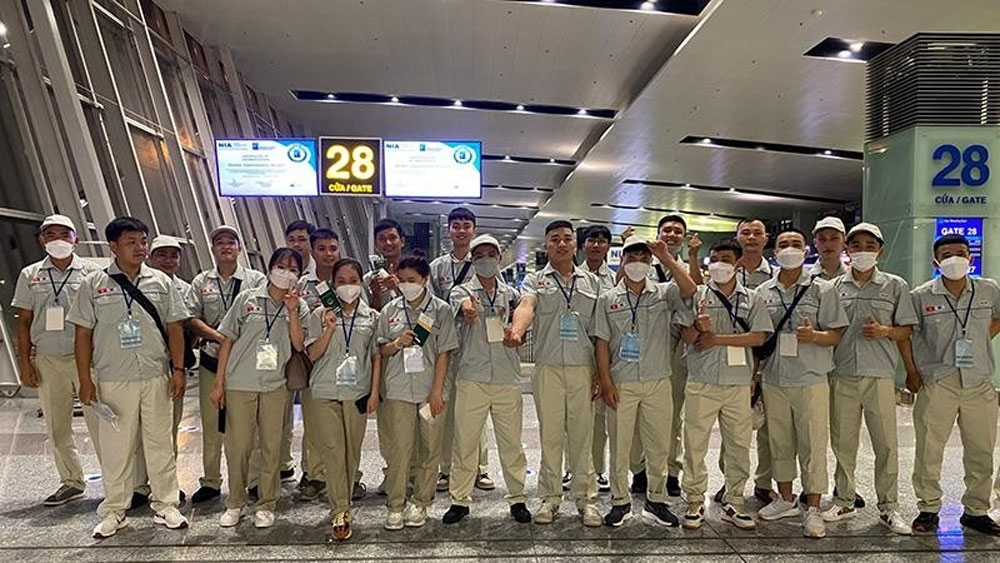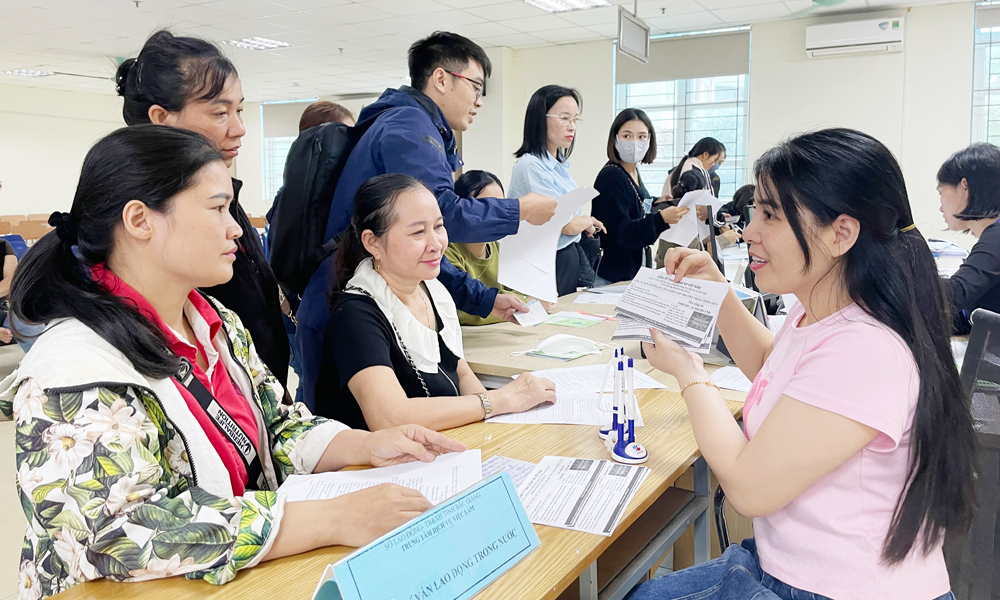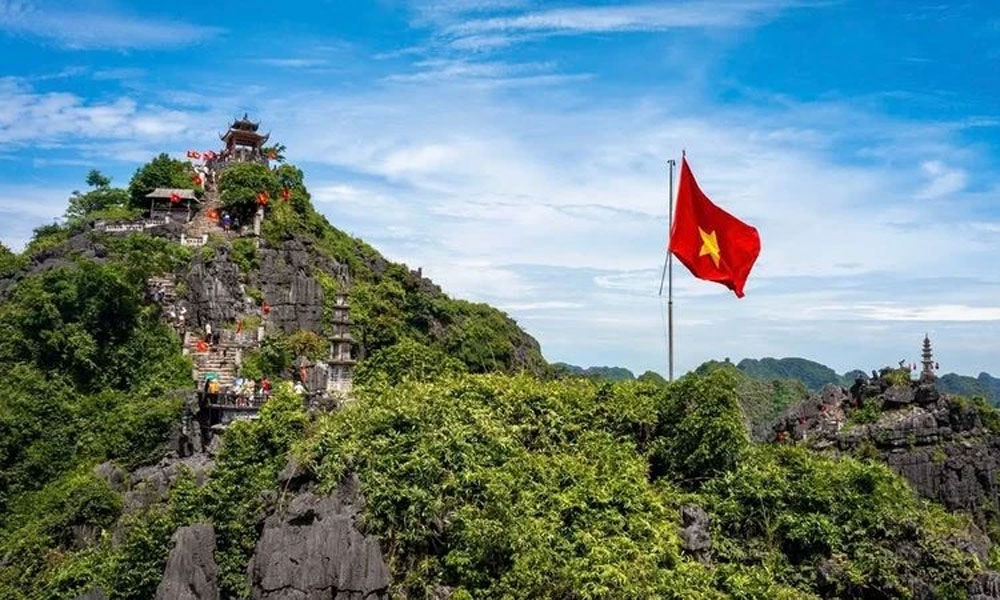Various programmes on sending labourers to the RoK attracts workers
Currently, about 50,000 Vietnamese labourers work in the manufacturing, construction, agriculture and fishery industries throughout the country.
 |
|
Labourers go to work in the Republic of Korea. |
A representative of the Department of Overseas Labour (DOLAB) under the Ministry of Labour, Invalids and Social Affairs said that since 2018, a pilot programme on sending labourers to work seasonally in the RoK in the form of cooperation between localities of the two countries.
The programme has created favourable conditions for Vietnamese farmers to work in the RoK to learn techniques and experience in farming, harvesting, preserving and distributing agricultural products.
Currently, 9 localities including Da Nang, Dong Thap, Ha Tinh, Hau Giang, Thai Binh, Thua Thien Hue, Ha Nam, Ca Mau and Quang Binh have signed agreements with Korea. Thereby, bringing nearly 1,000 labourers to work in this form. Seventeen provinces are negotiating to sign an agreement with their localities.
Recently, on April 27, 2022, the Government issued Resolution No. 59/NQ-CP on continuing the pilot implementation of sending Vietnamese workers to work seasonally in the RoK in the form of cooperation between regions of the two countries. The implementation period is for five years, from January 1, 2022.
After reaching an agreement with relevant ministries and branches, the Ministry of Labour, Invalids and Social Affairs shall guide the implementation of the Resolution with several specific contents.
Accordingly, based on the cooperation relationship between Vietnamese localities and Korean localities, the provincial People's Committees or specialised agencies under the People's Committee of the provinces, the People's Committee of the districts assigned by the People's Committee of the provinces to exchange and sign a cooperation agreement on sending workers to work seasonally in the RoK (hereinafter referred to as the Agreement).
Signing the Agreement should ensure the content of the rights and benefits of employees under the laws of Vietnam and Korea. it is necessary to clearly define and assign tasks to local agencies to organise the implementation of the Agreement. The Cooperation Agreement on sending workers to work seasonally in the RoK must comply with Vietnamese law and Korean law.
The agencies implementing the Agreement must organise the direct selection of the right employees who live permanently in the locality, and are working in the fields of agriculture, and fishery, to meet the requirements of the employer in the Signing Agreement.
In particular, priority must be given to selecting employees who are policy beneficiaries, ethnic minorities, poor households, near-poor households or households whose agricultural land has been acquired, including relatives of people with meritorious services to the revolution in the localities.
Every year, the Korean side will consider stopping the recruitment and dispatch of local and foreign seasonal workers if the previous year had a rate of seasonal workers leaving the contract higher than 10%. In addition, it will be considered to stop accepting workers from countries where the total rate of seasonal workers leaving their contracts exceeds 50%.
Therefore, it is necessary to promote communication and education to raise awareness among workers and people about the regulations for Vietnamese workers going to work abroad, and that they do not violate the contract, or immigration law during their time working in the RoK, in order not to affect the image of the country and people of Vietnam and cooperation between the two localities.
It is necessary to have a mechanism to closely monitor and manage the process of Vietnamese citizens working in the RoK, to prevent the situation of labourers fleeing, illegally residing abroad, and violating the law abroad. It is necessary to coordinate with the RoK's local authorities to promptly solve arising problems. The two localities are responsible for coordinating with the Vietnamese representative agency in Korea to manage, support and protect seasonal workers.
Source: NDO
 Bắc giang
Bắc giang













Reader's comments (0)